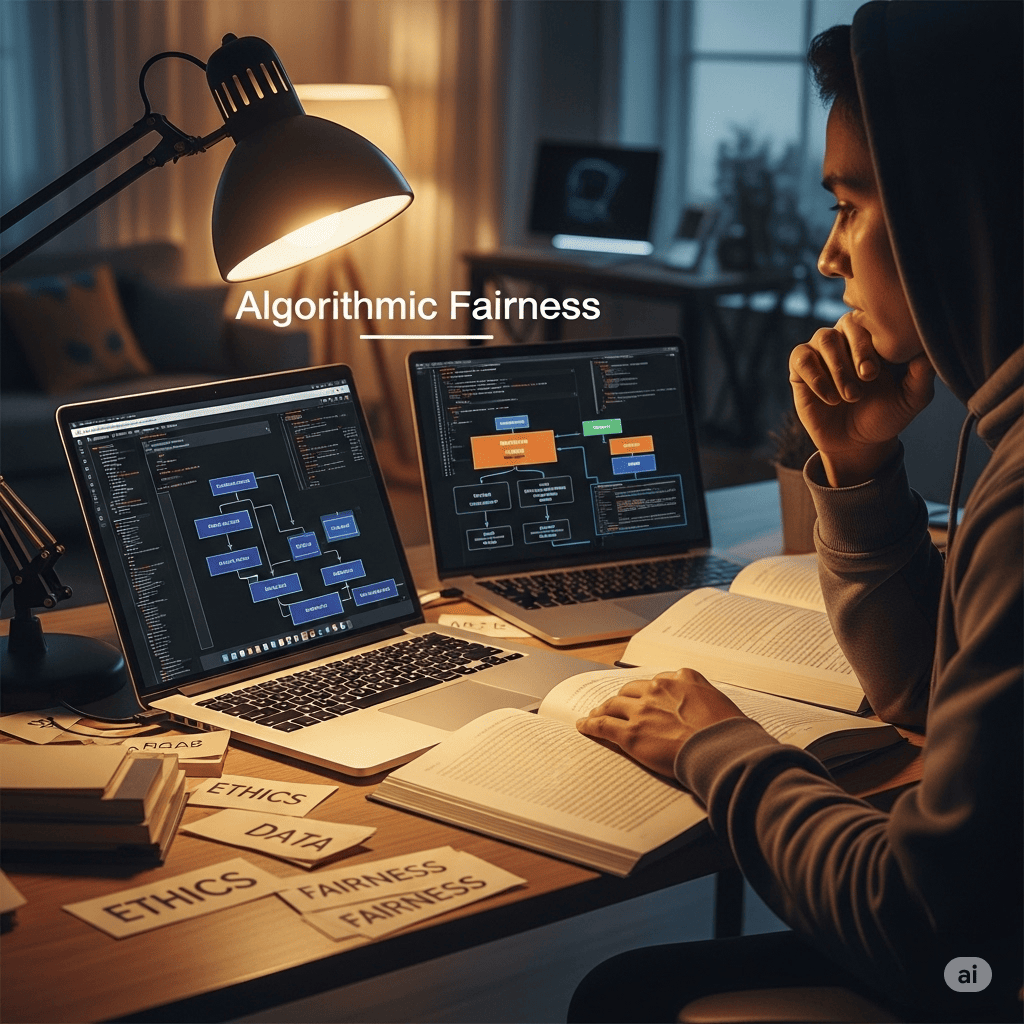I’ll be honest: for the longest time, I thought algorithmic fairness was something only machine learning engineers or data scientists needed to worry about.
I was writing mostly frontend code and backend APIs. My focus? Performance, design, and user experience. That changed the day I read about a loan application system that was denying qualified applicants—just because of the neighborhoods they lived in.
The decisions were made by an algorithm.
But that algorithm was built by people like me.
That realization hit hard. It made me rethink the role I play as a developer and how the software I build can have real-world consequences. That’s when I started learning about algorithmic fairness—and why I now believe every developer should have it on their radar.
Understanding the Basics First
Before I dove into fairness tools or techniques, I had to reframe how I saw algorithms.
I used to think of them as objective logic machines—neutral, data-driven, and reliable. But here’s the truth: algorithms are built on data, and data reflects the world. And our world is full of bias, inequality, and historical injustice.
Learning algorithmic fairness wasn’t just a technical exercise. It was about asking questions like:
- Where does this data come from?
- Who collected it, and with what intention?
- Who is represented—and who’s missing?
Resources that helped me:
- Cathy O’Neil’s TED Talk
- Articles from FAccT (Fairness, Accountability, and Transparency)
- Blog posts from ethicists, developers, and marginalized communities
You don’t need a degree. You just need curiosity—and a willingness to challenge assumptions.
What Developers Like Us Often Miss
1. Bias Exists in the Basics
You don’t need AI to create biased systems. Even simple UI decisions can be exclusionary.
Example: Requiring users to input “First Name” and “Last Name” assumes a Western naming convention. This can alienate people from cultures where names don’t follow that structure.
Bias can creep into:
- Form design
- Database schemas
- Default values
- Access controls
2. “Objective” ≠ Fair
Many developers assume that because something is numerical, it’s neutral. But that’s misleading.
Let’s say a hiring algorithm learns from past employee data. If those employees are mostly men, the system may favor resumes with “masculine” traits—even if gender isn’t explicitly included.
The problem isn’t the algorithm—it’s the data.
3. There’s No Single Definition of Fairness
Fairness is context-specific. Here are just a few interpretations:
- Demographic parity: Equal outcomes across groups
- Equal opportunity: Equal true positive rates
- Individual fairness: Treat similar individuals similarly
You can’t optimize for all at once. That’s why developers need to understand the trade-offs and work with designers, product managers, and stakeholders to choose wisely.
How I Work Differently Now

1. Ask the Right Questions Early
Before I write code, I ask:
- Could this feature treat people unfairly?
- Is this default value making assumptions?
- Will this data field be used in unintended ways?
Even if I’m not building the final algorithm, my choices feed into it.
2. Be Wary of Black-Box Tools
I avoid ML libraries or APIs that don’t explain their logic.
If I don’t understand how a system makes decisions, I won’t trust it—especially if it’s affecting loans, jobs, or healthcare. Interpretability is part of my ethical responsibility.
3. Include Diverse Voices
I test features with people from different cultures, age groups, and backgrounds.
A feature that feels “normal” to me might be confusing or hurtful to someone else. Diverse feedback helps uncover those blind spots before they become real problems.
4. Educate and Speak Up
I talk to colleagues—especially those newer to fairness—about the risks of algorithmic harm.
Sometimes all it takes is a real-world example (like facial recognition failing on dark skin tones) to help people understand the stakes.
Conclusion
Learning about algorithmic fairness didn’t turn me into a machine learning expert.
But it did change how I approach software. It made me more thoughtful. More responsible. More human.
As developers, we hold real power. We shape the systems that impact jobs, housing, safety, and access to opportunity. If we ignore fairness, we’re not just writing buggy code—we’re writing harmful code.
So no matter your role—whether you build UIs, APIs, data pipelines, or recommendation engines—algorithmic fairness is your concern.
Not because it’s trending. But because people’s lives are on the other side of your decisions.
Read more posts:- Why I Built a Micro-Hydropower IoT Device for My Village